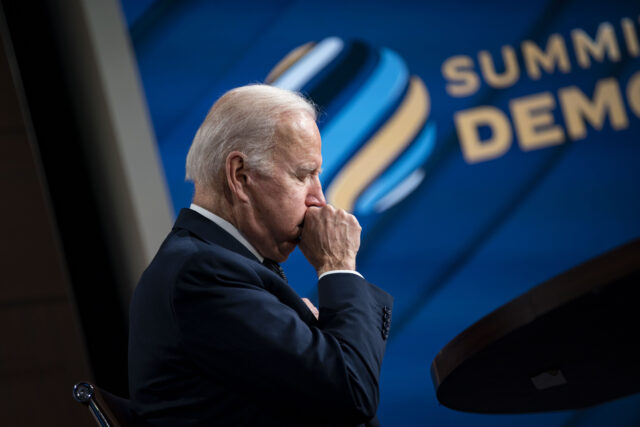Consumer confidence declined more than expected in July as Americans grew increasingly unhappy about the condition of the U.S. economy.
The Conference Board said Tuesday that its index of consumer confidence dropped for a third straight month to 95.7 from a downwardly revised 98.4 reading in June. Economists surveyed by Econoday had forecast 96.8.
The barometer of current conditions, which is based on views of current business and labor market conditions, declined to 141.3 from 147.2 in June. The gauge of expectations edged down from 65.8 to 65,3.
“Consumer confidence fell for a third consecutive month in July,” said Lynn Franco, Senior Director of Economic Indicators at The Conference Board. “The decrease was driven primarily by a decline in the Present Situation Index—a sign growth has slowed at the start of Q3. The Expectations Index held relatively steady, but remained well below a reading of 80, suggesting recession risks persist. Concerns about inflation—rising gas and food prices, in particular—continued to weigh on consumers.”
Just 17.0 percent of consumers said business conditions were “good,” down from 19.5 percent a month ago. Twenty-four percent of consumers said business conditions were “bad,” up from 22.8 percent in June.
Views of the labor market are better but softening. The share saying jobs are plentiful fell to 50.1 percent, down from 51.5 percent in June. The share saying jobs are hard to get rose to 12.3 percent from 11.6 percent. The outlook for the labor market six months from now is mixed. The share of consumers expecting fewer jobs fell to 21.4 percent, down from 22.2 percent. The share expecting more jobs also fell, declining to 15.7 percent from 15.9 percent.
Not many expect business conditions to improve. Just 14 percent of consumers say conditions will be better six months from now, down from 14.6 percent. At the same time, the share expecting conditions to worsen slid to 27.2 percent from 29.7 percent.
High inflation and monetary policy tightening aimed at taming inflation are likely to slow consumer spending in the second half of 2022.
“As the Fed raises interest rates to rein in inflation, purchasing intentions for cars, homes, and major appliances all pulled back further in July. Looking ahead, inflation and additional rate hikes are likely to continue posing strong headwinds for consumer spending and economic growth over the next six months,” Franco said.

COMMENTS
Please let us know if you're having issues with commenting.